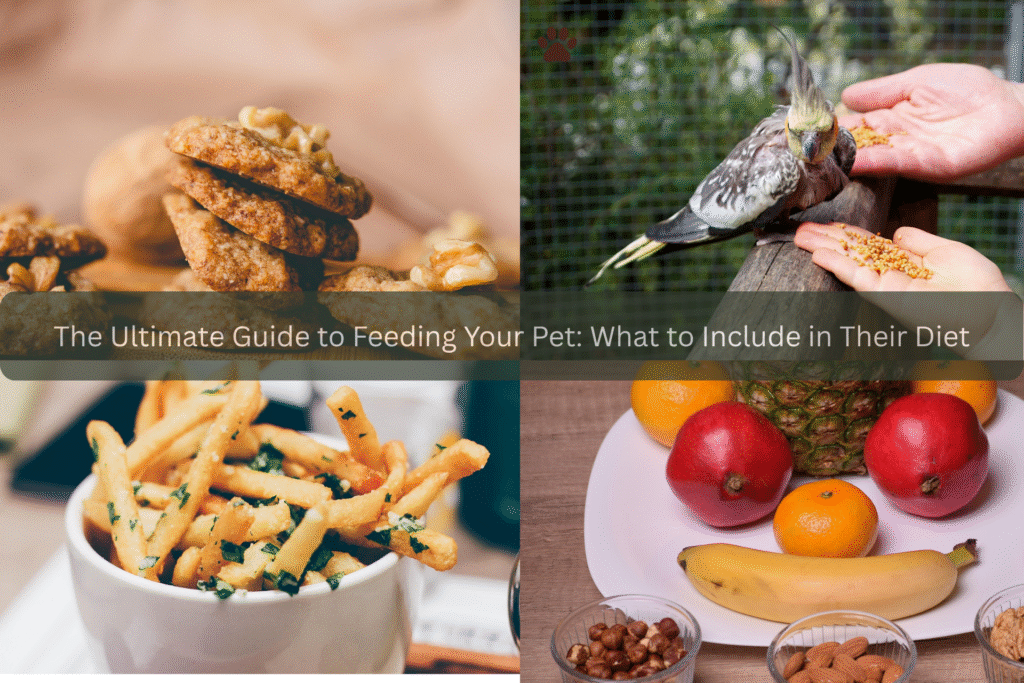Guide to Feeding Your Pet when it comes to ensuring your pet’s health and well-being, one of the most important factors is their diet. Just like humans, pets require a balanced diet to maintain energy, grow properly, and fight off illness. But with so many options on the market, how can you decide what is best for your furry friend? This comprehensive guide will help you understand what to include in your pet’s diet, based on their age, breed, and specific health needs.
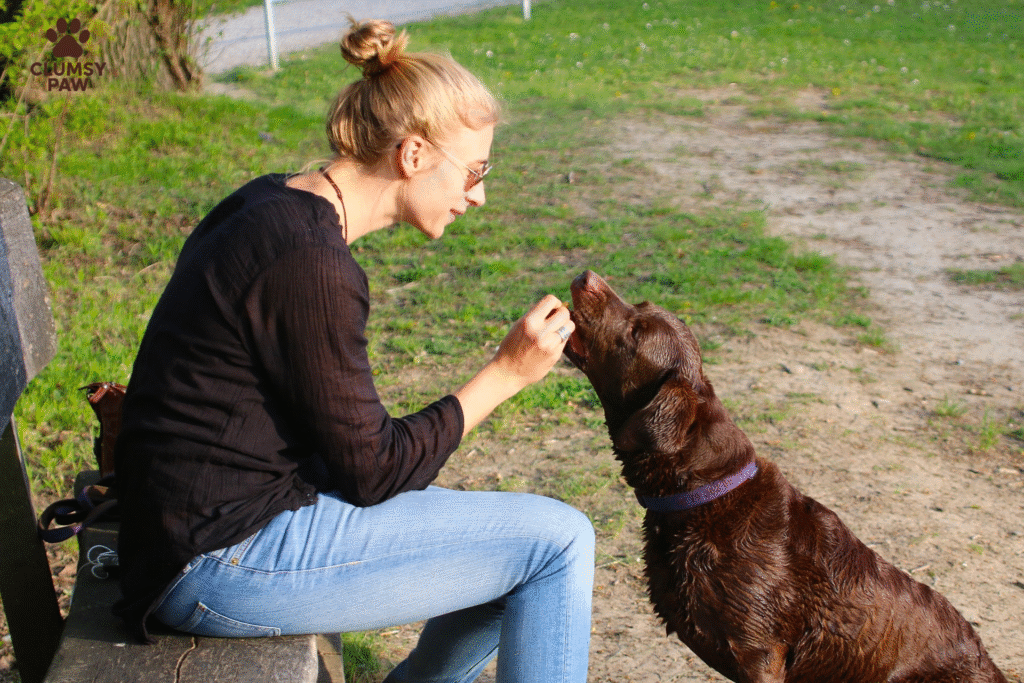
The Importance of a Balanced Diet for Your Pet
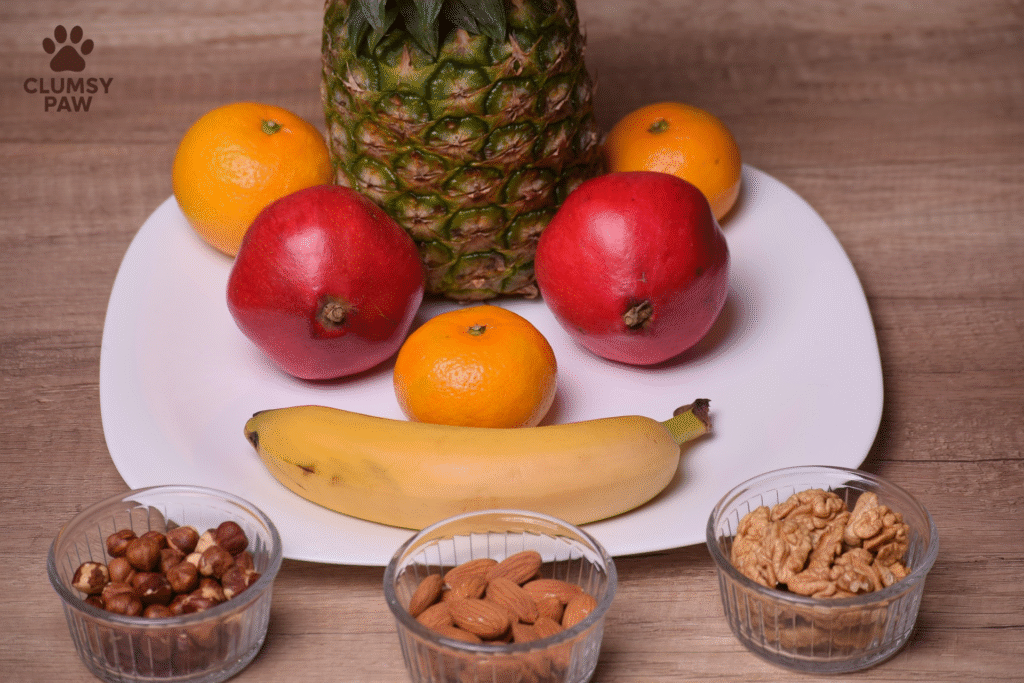
A well-balanced diet is essential for your pet’s overall health. Pets, whether dogs, cats, or other animals, need a combination of nutrients, vitamins, minerals, fats, and proteins to stay healthy. Inadequate nutrition can lead to various health problems, including obesity, skin issues, and a weakened immune system.
What Nutrients Are Essential in Your Pet’s Diet?
The key nutrients to include in your pet’s diet are proteins, carbohydrates, fats, vitamins, and minerals. Each nutrient plays a vital role in maintaining their health and energy levels:
- Proteins: Essential for muscle growth and repair. Good sources include chicken, beef, and fish.
- Carbohydrates: Provide energy and help with digestion. Whole grains, fruits, and vegetables are great sources.
- Fats: Important for energy and maintaining healthy skin. Fish oil and flaxseed are excellent fat sources.
- Vitamins & Minerals: Help maintain bone health, immune function, and more. Look for fortified pet food with the proper vitamins and minerals.
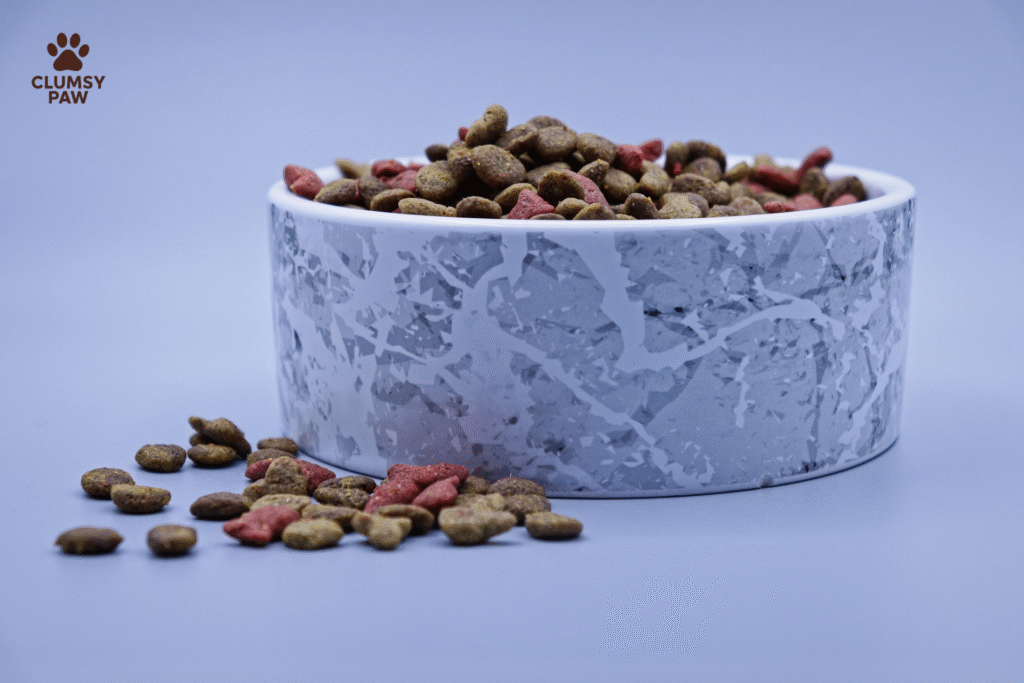
How to Choose the Right Pet Food
When choosing pet food, it’s essential to read the labels carefully and select a high-quality product. Here are some key factors to keep in mind:
1. Age-appropriate food
Pets of different ages require different diets. Puppies, kittens, and senior pets need special formulations to support their growth or maintain their health. Look for food labeled “puppy,” “kitten,” or “senior” as appropriate for your pet’s age.
2. Breed-specific formulas
Certain breeds may have unique dietary needs. For instance, large breed dogs often require food that supports joint health, while small breed dogs might need food with higher calorie content due to their faster metabolism.
3. Protein content
Protein should be one of the primary ingredients in your pet’s diet. Look for meat sources like chicken, turkey, or fish as the first ingredient. The amount of protein varies depending on the species; for instance, cats are obligate carnivores and require higher protein levels than dogs.
4. Avoid artificial additives
Choose pet food that is free of artificial flavors, colors, and preservatives. These additives can lead to allergic reactions and digestive issues.
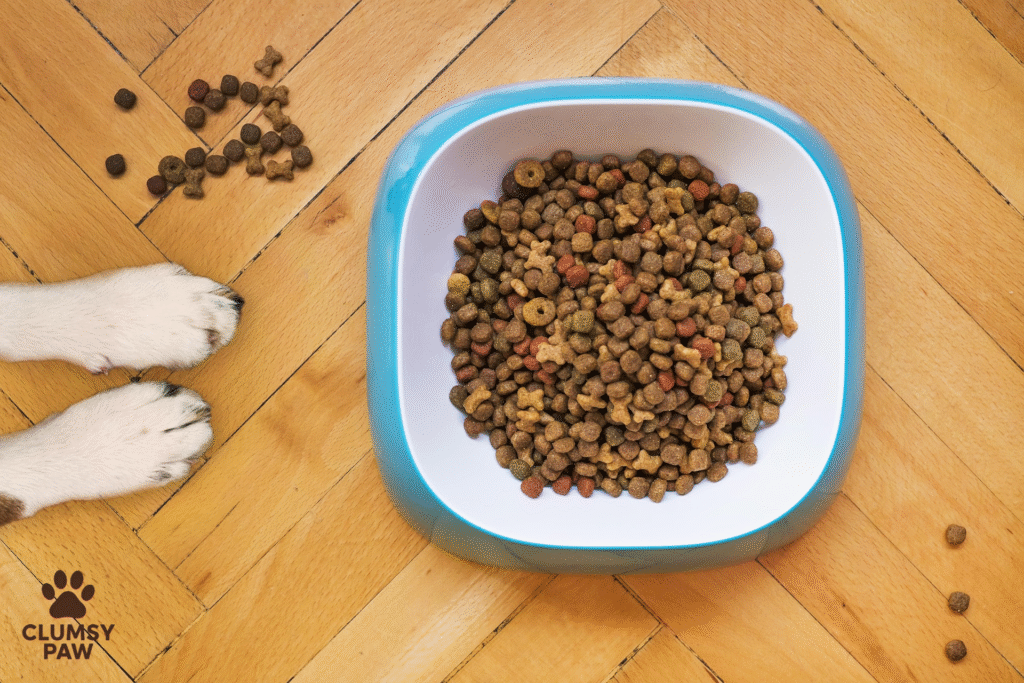
Homemade Pet Food: Is It a Good Option?
Some pet owners prefer preparing homemade food for their pets, believing it to be healthier and more nutritious. While cooking for your pet can be beneficial, it’s essential to do it properly. Homemade food must be well-balanced, and it should include all the necessary nutrients.
Key ingredients to include in homemade pet food:
- Protein: Chicken, turkey, beef, lamb, and fish are excellent options.
- Carbohydrates: Rice, oats, and sweet potatoes can serve as good sources of carbohydrates.
- Vegetables: Carrots, peas, and spinach are nutrient-rich vegetables that pets can enjoy.
- Fats: Olive oil, flaxseed oil, and fish oil provide healthy fats.
- Supplements: You may need to add supplements such as taurine, omega-3 fatty acids, or calcium, especially for cats.
However, it’s important to consult with a veterinarian before switching your pet to homemade food, as an unbalanced diet can cause health problems.

Special Diets for Pets with Health Conditions
Just like humans, pets can have specific health conditions that require a tailored diet. Here are a few common conditions that may necessitate a special diet:
1. Obesity
Obesity is a significant concern for pets, especially in domesticated cats and dogs. Overfeeding and a lack of exercise can contribute to weight gain. To help your pet maintain a healthy weight, consider switching to a weight management food that is lower in calories and fats but still provides essential nutrients.
2. Food Allergies
Pets can develop food allergies, leading to symptoms like itching, gastrointestinal issues, or ear infections. Common allergens for pets include beef, chicken, dairy, and grains. If your pet has food allergies, consult your vet to find hypoallergenic food options or consider a limited-ingredient diet.
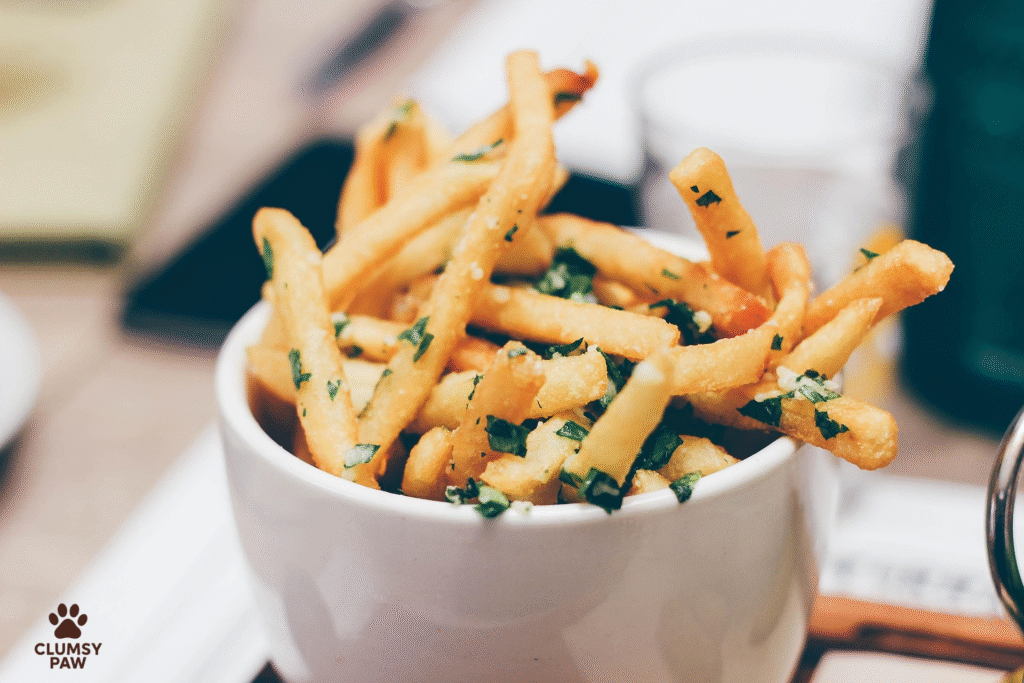
3. Sensitive Stomach
Some pets have sensitive stomachs that require easy-to-digest food. Foods with prebiotics and probiotics can support your pet’s digestive system and help with gut health.
4. Joint Health
Pets, especially larger breeds, may suffer from joint pain and arthritis. Special diets with added joint supplements like glucosamine and chondroitin can help support joint health and reduce inflammation.

How Often Should You Feed Your Pet?
Feeding frequency depends on your pet’s age, size, and activity level. Here’s a general guideline:
- Puppies and kittens should be fed 3-4 times a day.
- Adult pets (dogs and cats) typically eat 2 times a day.
- Senior pets might require smaller, more frequent meals to aid digestion.
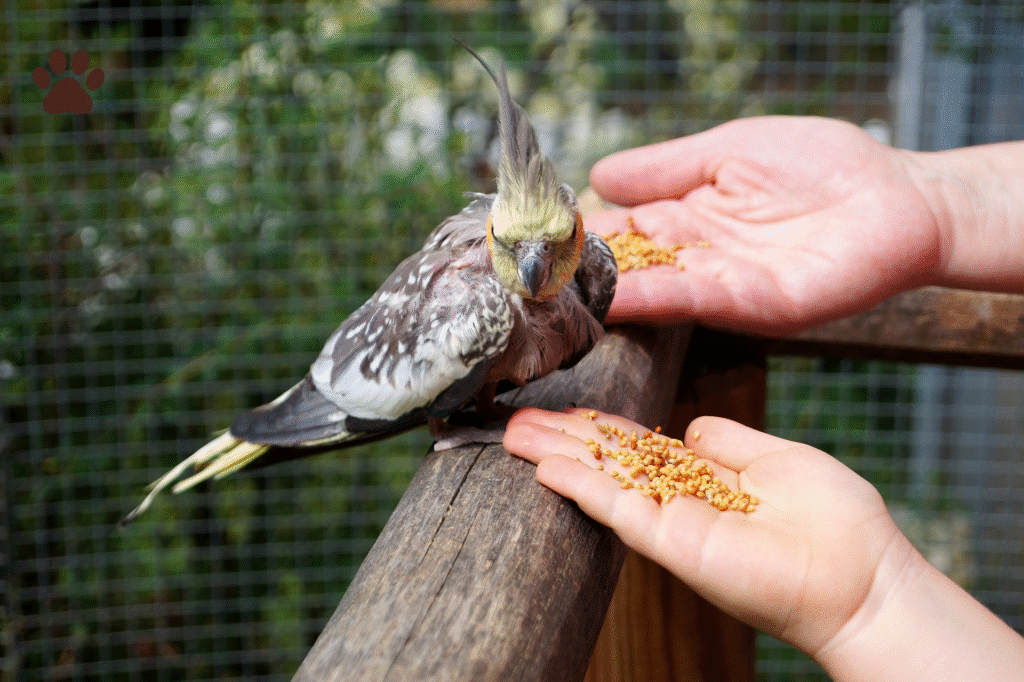
Always follow your vet’s recommendations when deciding on portion sizes and feeding schedules.
Treats and Snacks: What’s the Right Amount?
Treats are a great way to reward your pet, but they should not replace a balanced diet. Keep the following tips in mind:
- Treats should make up no more than 10% of your pet’s daily caloric intake.
- Opt for healthy treats like carrots, apples, or specially formulated pet snacks.
- Avoid feeding your pet human food, as many foods (like chocolate, grapes, and onions) are toxic to pets.
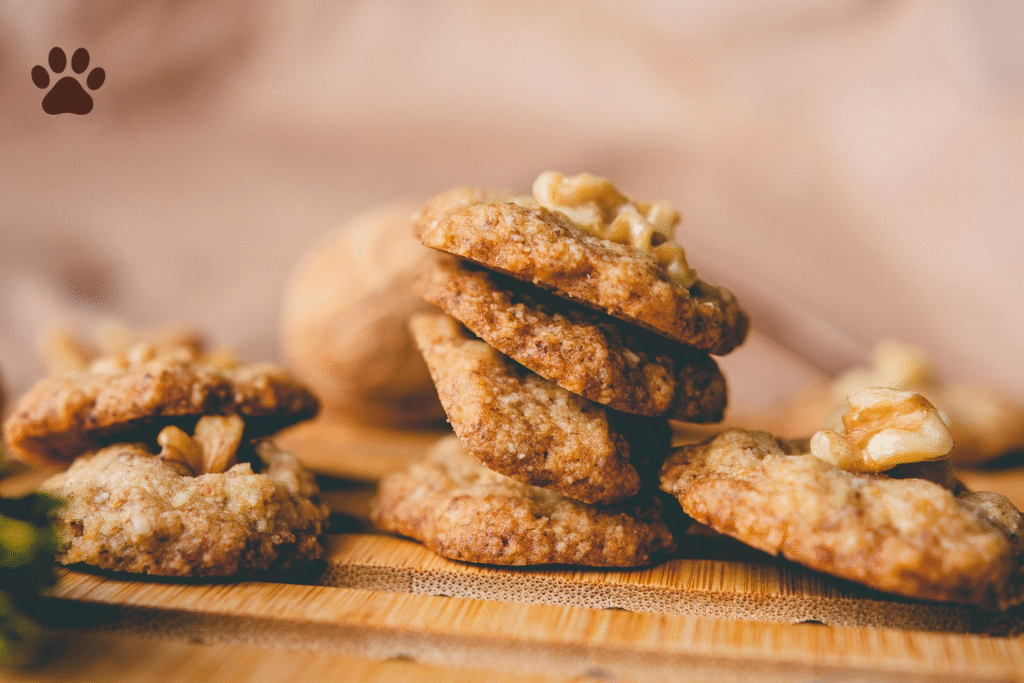
Hydration:
Just as important as food is water. Dehydration can lead to serious health problems. Ensure your pet always has access to fresh, clean water. For pets that are hesitant to drink, try providing wet food or adding water to their dry food.
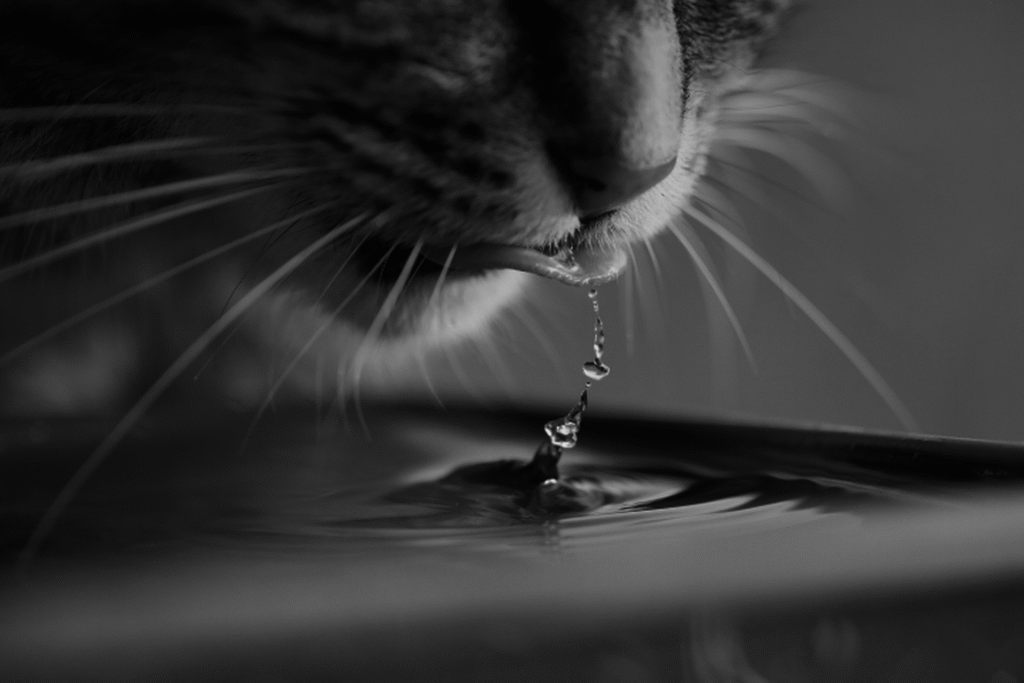
Conclusion:
Feeding your pet a balanced, nutritious diet is one of the best things you can do to ensure their long-term health. By understanding their nutritional needs, selecting the right food, and providing them with the proper care, you’ll help your furry friend live a happy and healthy life. Whether you’re choosing commercial pet food or preparing homemade meals, always prioritize their health and consult your vet if you’re unsure about any aspect of their diet.

